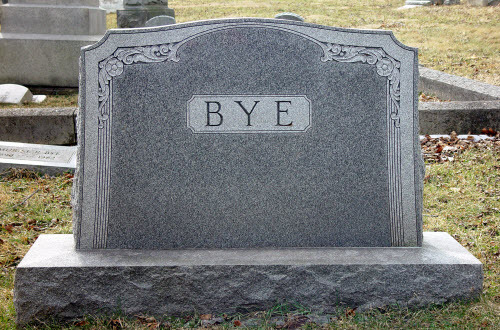

Why the Best and the Brightest Often Die First

Laurence Gonzales tells the story of Captain James Gabba, an Army Ranger, who drowned when a raft he was taking down the upper Gauley river in West Virginia, hit a rock and knocked him out of the raft. The commercial guide was also knocked out of the raft and tried to rescue Gabba, who playfully pushed him away and laughed, perhaps thinking that his Army Ranger training was many times more dangerous and stressful than this minor upset. Consequently, Gabba floated downstream into a massive rock blocking the river flow, and was pulled under by the power of the current and drowned.
A typical civilian with no advanced training would have welcomed the guide’s rescue attempt and most probably lived to tell quite a story. Captain Gabba perhaps saw the guide’s rescue attempt as unnecessary for such a well-trained “stud” as he. His family attended his funeral and had only a tragic story to tell.
Ranger training is some of the most rigorous and demanding that the Army provides. Successfully completing the grueling 8-week course can give the soldiers tremendous confidence and know-how in survival skills under extreme conditions. Yet, in Ranger training, having to be rescued equates to failure. Self-sufficiency is rewarded. Rangers lead the way; they don’t need to be rescued!
Now, all things considered, physical and mental training should never be minimized; however, some of the very training in business schools, universities and military programs, while teaching extremely valuable information and technique, also insidiously teach a confidence that can be most counterproductive in survival situations. An MBA does not teach one to cope with a shocking divorce. When you are alone in a business failure, the degrees or awards hanging on your wall do not provide any comfort or remedy. In fact, all that training seems to mock you in your failure. How could a guy/gal like you with all that good training fail so miserably or be so confused in life?
Let’s examine more carefully this seeming paradox in survival:
1. Survival requires both faith and works. By faith, I’m referring to that inner confidence that keeps us believing we will survive and ultimately be successful. And when we stop believing that we can, we don’t. And when we don’t, we die. But faith is more than believing we will survive; faith should also motivate us to do our part to rescue ourselves. Believing that someone will rescue us is often merely a false hope that will bring depression when it doesn’t happen. Whereas, faith can give us the confidence to look for ways we can hike out of our woods. Faith sees itself surviving, so it does those things that a survivor would do.
2. Survival ultimately depends on outside help. Juliane Koepcke – the 17 year-old girl who hiked from a plane crash to a stream to a river and eventually to a hunting cabin – had the faith to believe she could walk out of the jungle; yet, she was eventually rescued by the hunters who got her to a hospital. Aron Ralston, who was forced to cut off his arm to survive a tragic hiking accident successfully stopped the bleeding, overcame the shock and hiked to a road, but he was rescued by those who stopped to help him. Eventually, you will need help. But faith, confidence and experience can reject help. Asking for or accepting help in certain situations makes highly-trained persons feel embarrassed or even too proud to receive that help.
3. Survival is dependent upon one’s ability to be in the present. Survival is a battle between 2 emotional enemies. The first is, “I know where I want to be and it’s not here.” The second is “I’m confused and tired, and I just want to lie down and quit”. In 1873, a psychologist used the term “woods shock” to describe the confusion associated with being lost. We described earlier how backpackers and experienced hunters in a state of confusion leave their packs and rifles and die. Perhaps the word “bewildered” best explains it. As Gonzales explains, “Bewilder means to confuse hopelessly.” And so we find this confusion and hopelessness when we are in trouble with our business or marriage. Our mind becomes very confused and troubled. We don’t want to be where we are and we kick and thrash to get out. Or we lie down and let it suffocate us. But to fight it and win begins with what Gonzales calls the 1st rule of life, which is “Be here now.” Gonzales writes, “Only when you are aware can you take action. One part of survival is knowing how to avoid trouble. Avoiding trouble is much better than trying to survive it.




Comments (5)
Don Alberts, over 9 years ago
Don Alberts, over 9 years ago
I rarely comment on an article but this was extremely well written and poignant! Job well done and a great reminder that we can all use a helping hand on occasion and, if you accept that help you're not a failure.
Troy Sheets, over 9 years ago
Agreed...Great post!!
Asking for help can definitely be a hard thing to do. It truly is that breaking point, that usually decides one's success or failure.
Josh Bryant, over 9 years ago
WOW! Great and motivating article. One thing I always share with people is "when you are ready to give up or confused, you are close to break through"
Ilhan Dahir, over 9 years ago